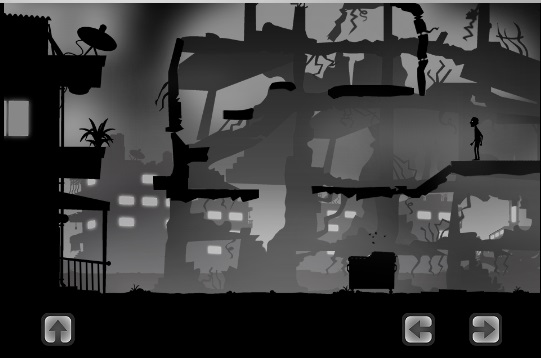
[Update: Apple has apparently reversed its decision, listing Liyla and the Shadows of War in the App Store as a game as of Sunday. "This community is so amazing, thanks. Liyla is an Act of Humanity," the creator wrote in a tweet in response to the decision. Apple didn't offer any public comment in response to Ars Technica's request.]
The creator of a game about a Palestinian child struggling to survive with her family in the 2014 Gaza strip says the title has been rejected from the games section of the iOS App Store because, as he puts it, "it has a political statement."
Liyla and the Shadows of War is currently listed on Google Play as an Adventure game, and it includes "challenging decision, events and puzzles awaiting for you [sic]" according to its online press kit. But Palestinian creator Rasheed Abueideh tweeted a rejection message in which Apple said the game was "not appropriate in the games category" and that it would be "more appropriate to categorize your app in News or Reference for example."
The rejection didn't go into detail about where Apple draws the line between "Games" and "News," but Apple's App Store Review guidelines have laid out the company's thinking since 2010: "We view Apps different than books or songs, which we do not curate. If you want to criticize a religion, write a book. If you want to describe sex, write a book or a song, or create a medical app." Those same guidelines also lay out a vague "I'll know it when I see it" standard for when content goes "over the line" in ways not specifically prohibited by the guidelines (Apple has yet to respond to a request for comment from Ars).This vagueness has led to some inconsistent applications of the rules, to say the least. Naomi Clark points out on Twitter that Israeli Heroes, an Angry Birds clone about sending missiles at foreign-looking cartoon bombers, is currently listed in the iOS App Store under Games. Yet a number of Civil War-themed games were removed from the App Store last year because of imagery related to the Confederate flag (Apple later sought to reinstate some of those games and Apps that were using the flag for "educational or historical uses.")
Other examples of questionable iOS App Store rejections are almost too numerous to list. A "virtual reality journalism" app about the recent police shooting in Ferguson was rejected last year for "inappropriate subject matter." Papers, Please was initially rejected for brief scenes of nude people in a body scanner, before Apple reversed the decision. Games have been dismissed for exploring the ongoing Syrian civil war, for examining sweatshop conditions, and for teaching women about masturbation, among other things.Retailers and platform holders have the right to arrange their storefronts any way they see fit, of course, and game makers can always take their content to more open platforms. But when a company like Apple exercises total control over what can be sold to a major chunk of the mobile market, it can have an outsized impact on the direction of the entire market. Apple owes it to developers and mobile gamers as a whole to be clearer and more open about what speech it considers "appropriate" in the gaming realm.
reader comments
70